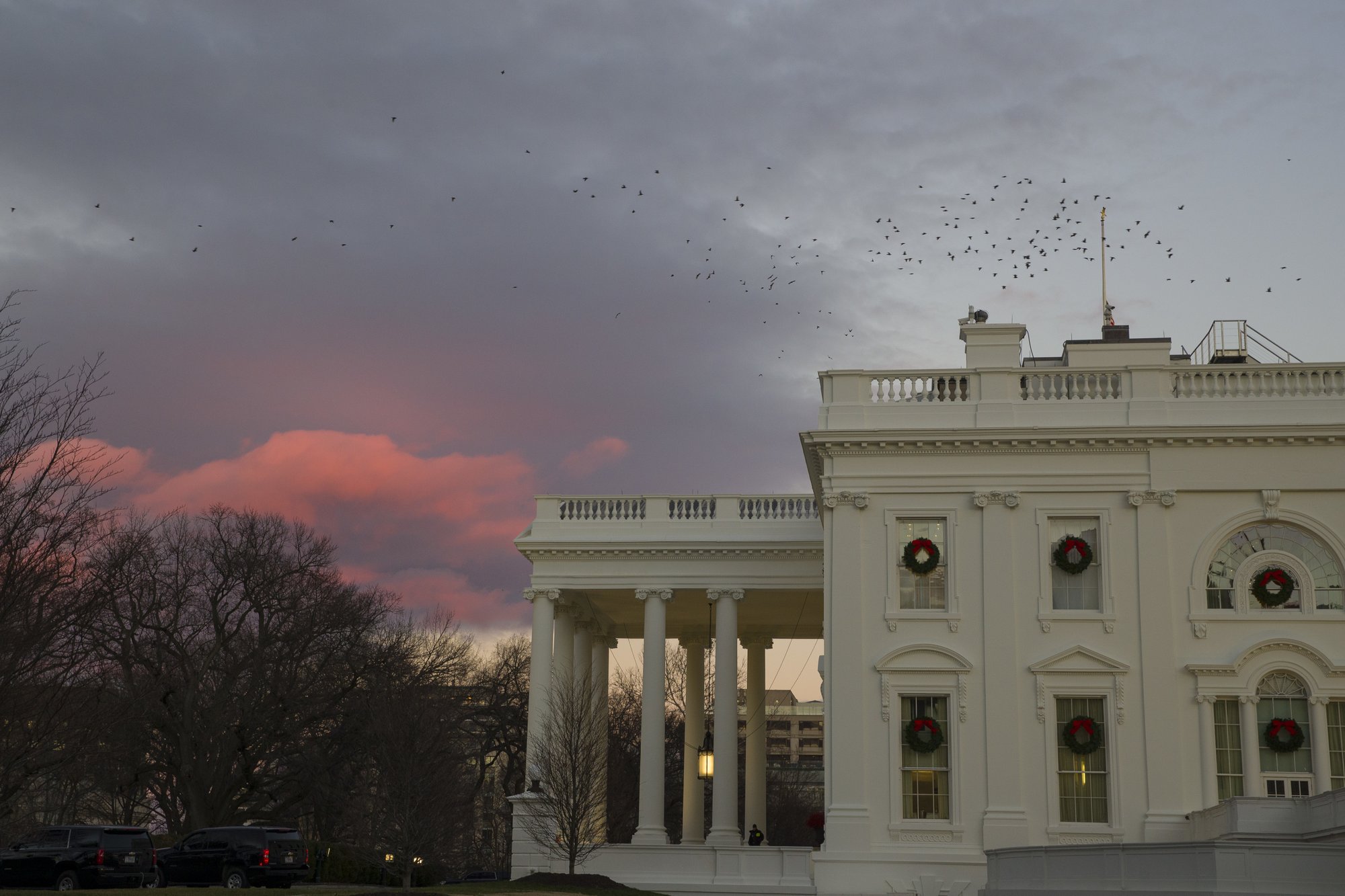
The setting sun illuminates clouds behind the White House during a partial federal shutdown, Saturday, Dec. 22, 2018, in Washington. (Photo: AP)
A top White House official signaled Sunday that President Donald Trump is willing to accept less money than he’s been demanding to build a U.S.-Mexico border wall, but a senior congressional Democrat said that, while their own offer could be sweetened, they still will not agree to a wall.
The back and forth across the television airwaves did little to inspire hope that a Christmas season closure of some federal government operations would end later this week, when the House and Senate are scheduled to meet again.
In fact, acting White House chief of staff Mick Mulvaney warned that the shutdown could stretch into January, when a new Congress is seated.
Mulvaney, who also runs the White House budget office, said he’s awaiting a response from Senate Democratic leader Chuck Schumer of New York after the administration on Saturday presented Schumer with a counteroffer in the long-running dispute over funding the wall.
Mulvaney withheld specifics but placed the offer at between Trump’s $5.7 billion request and $1.3 billion Democrats are offering.
“We moved off of the five and we hope they move up from their 1.3,” Mulvaney said.
The director’s comment about the president’s softening stance came less than 24 hours after a senior administration official insisted to reporters on Saturday that Congress give into Trump’s demands, highlighting the unpredictable nature of Trump’s negotiating style.
Sen. Dick Durbin, D-Ill., argued instead for increasing the use of technology along the border instead of building “some medieval wall.”
Asked whether he’s willing to increase the price tag as long as the money is not spent on a wall, Durbin responded: “Absolutely.”
A stalemate over the wall led parts of the government to shut down Saturday after funding for numerous departments and agencies expired. The closure, affecting hundreds of thousands of federal workers across the country, was expected to last at least through late this week after the House and Senate, which each met in a rare weekend session, adjourned until Thursday.
Monday and Tuesday, Christmas Eve and Christmas, respectively, are federal holidays, meaning the federal government would already be closed. Wednesday is the first day the public could begin to feel the effects of a shutdown, Mulvaney said.
He predicted it could extend into January, when Democrats will assume control of the House based on their midterm election gains.
The director’s comment about the president’s softening stance came less than 24 hours after a senior administration official insisted to reporters on Saturday that Congress give into Trump’s demands, highlighting the unpredictable nature of Trump’s negotiating style.
Sen. Dick Durbin, D-Ill., argued instead for increasing the use of technology along the border instead of building “some medieval wall.”
Asked whether he’s willing to increase the price tag as long as the money is not spent on a wall, Durbin responded: “Absolutely.”
A stalemate over the wall led parts of the government to shut down Saturday after funding for numerous departments and agencies expired. The closure, affecting hundreds of thousands of federal workers across the country, was expected to last at least through late this week after the House and Senate, which each met in a rare weekend session, adjourned until Thursday.
Monday and Tuesday, Christmas Eve and Christmas, respectively, are federal holidays, meaning the federal government would already be closed. Wednesday is the first day the public could begin to feel the effects of a shutdown, Mulvaney said.
He predicted it could extend into January, when Democrats will assume control of the House based on their midterm election gains.


